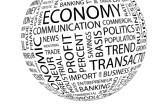Molly Minturn - My family is heartbroken to share that my father died in surgery on Monday, Feb. 10. It…
Jeffrey Sachs: "Common Wealth"
Written by Diana Thebaud Nicholson // April 16, 2008 // Agriculture & Food, Aid & Development, Climate Change, Economy, Environment & Energy // Comments Off on Jeffrey Sachs: "Common Wealth"
Common Wealth: Economics for a Crowded Planet

Sachs appeal
April 16
Charlie Rose: A conversation with Jeffrey Sachs
Mar 27th 2008
The Economist print edition
IF GILBERT AND SULLIVAN were looking for the very model of a modern intellectual, they would surely pick Jeffrey Sachs. He is so “right on” that when Time magazine featured him in its global list of people who influence the world, his profile was written by Bono, a rock singer. His job titles—director of the Earth Institute and special adviser to the United Nations Secretary-General on the Millennium Development Goals—seem almost tailor-made to get up the noses of conservatives.
Nor is Mr Sachs lacking in ambition. His previous book was called “The End of Poverty”. Now he has moved on to tackle a wide range of other challenges facing the planet, from climate change through to disease eradication. His goals include stabilisation of the world’s population, a move to sustainable energy use and “a new approach to global problem solving”.
If the above makes Mr Sachs sound like an impractical dreamer, that would be rather unfair. This densely written book is packed with statistics and carefully worded arguments. Nor is the author a left-wing ideologue. He recognises that the private sector and market-based solutions have a vital role to play. He cites, for example, the success achieved by public-private sector initiatives in tackling acid rain and chlorofluorocarbon emissions.
On population control, he makes the good (if counter-intuitive) point that improvements in infant mortality are an important part of the solution. When families know that more of their children will survive into adulthood, they have fewer kids. Reduced fertility in turn leads to improved living standards and, eventually, by cutting the numbers of idle and impoverished young men, reduces the potential for conflict and terrorism. As he remarks, this makes the Bush administration’s negative attitude towards family planning even more difficult to understand.
Courageously, Mr Sachs does not ignore costs. He reckons the bill for tackling the issues he raises will come to a total of 2.4% of rich-world economic output (about one year’s growth). That seems a reasonable price to pay, provided of course that you are not paying it. Indeed, the book’s rather jaunty tone plays down some of the hard choices that will need to be made if the world’s problems are to be tackled. On climate change, Mr Sachs is very enthusiastic about carbon capture and sequestration, a technology that is unproven on a large scale and will be difficult to adapt to existing power plants. One must also doubt whether all the world’s cars could really be converted into gas-electric hybrids by 2026, as he suggests.
This brings us to the main problem with the book: it is unremittingly worthy and expects other people to be so too. When the author writes that a post-Kyoto agreement on climate change “should include all actors, not just the rich ones, and not just the rich ones who are willing to reduce emissions”, one wonders how many real people would vote for that. Similarly, he says blithely that “in order to combat poverty and inequality, it is also essential to combat racism and intolerance.”
If everyone in the world were as reasonable as Mr Sachs, his solutions would be easy to implement. However, if everyone were that reasonable, there would not be so many problems in the first place.
Review by Richard D. Steele is a MUST READ
This is a book of, by, and for economic geeks. It is not a book for normal people.
If you are steeped in the literature and care deeply about the details, then this book is an absolutely essential reference, and for that reason receives four stars.
The author opens with “Humanity shares a common fate on a crowded planet.” Early on he says that sustainable energy could be achieved for 1% of world income. He believes Asia will be the economic center of gravity in the future (assuming this includes India, I agree). ”
From Publishers Weekly
In this sobering but optimistic manifesto, development economist Sachs (The End of Poverty) argues that the crises facing humanity are daunting—but solutions to them are readily at hand. Sachs focuses on four challenges for the coming decades: heading off global warming and environmental destruction; stabilizing the world’s population; ending extreme poverty; and breaking the political logjams that hinder global cooperation on these issues. The author analyses economic data, demographic trends and climate science to create a lucid, accessible and suitably grim exposition of looming problems, but his forte is elaborating concrete, pragmatic, low-cost remedies complete with benchmarks and budgets. Sachs’s entire agenda would cost less than 3% of the world’s annual income, and he notes that a mere two days’ worth of Pentagon spending would fund a comprehensive antimalaria program for Africa, saving countless lives. Forthright government action is the key to avoiding catastrophe, the author contends, not the unilateral, militarized approach to international problems that he claims is pursued by the Bush administration. Combining trenchant analysis with a resounding call to arms, Sachs’s book is an important contribution to the debate over the world’s future. (Mar.)
